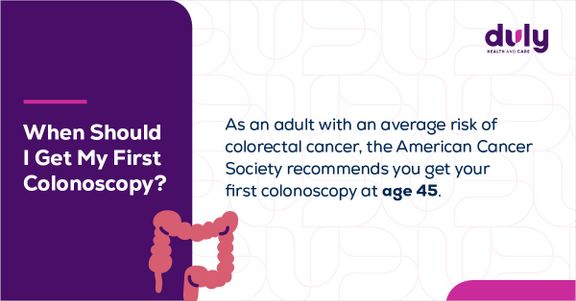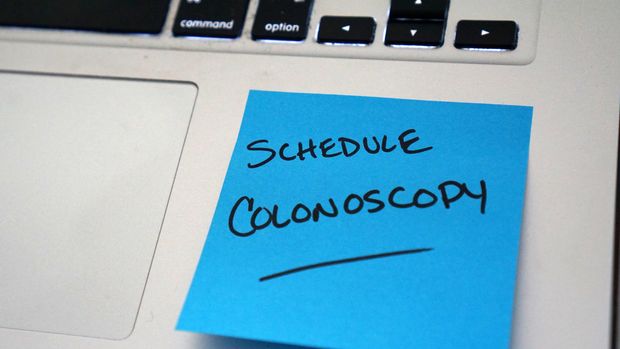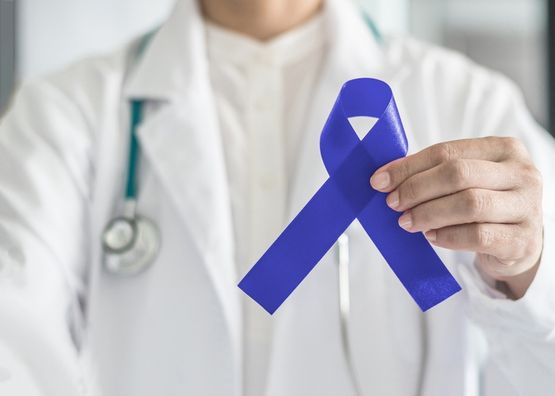When you think about your health, you might think about things like exercise, diet, and how much sleep you get. You may not be as quick to think about your colorectal health.
While it may not be the first thing on your mind when you think of your health, it’s one that is becoming more important.
You may have heard people talking about how colorectal cancer cases are going up, but is that true — and what can you do to lower your risk?
Is Colon Cancer On The Rise?
Since the 1980s, fewer people have been diagnosed with colorectal cancer (cancer that starts in the colon or rectum) annually. Overall, the diagnosis rate has dropped by 46% and the colon cancer death rate has dropped by 57%. But there are some groups where the rates of colorectal cancer are on the rise.
For young adults under the age of 50, colorectal cancer rates have been going up 1 to 2% every year starting in the 1990s. Today, 20% of new colon cancer diagnoses occur in people under the age of 55. This means people are being diagnosed younger and more often. People are also being diagnosed with more aggressive cancers. Sixty percent of patients diagnosed with colon cancer have an advanced stage of the disease — up 8% since the mid-2000s.
Experts aren’t entirely sure why colorectal cancer rates among younger adults are going up. Some think it may have to do with an increase in unhealthy habits, like smoking, poor diet, or lack of exercise. Some researchers think it may have to do with other factors in our physical environment, like chemicals and pesticides. And still, other researchers are looking inward at gut bacteria and other changes in the body.
While medical experts haven’t yet pinpointed exactly what might be the link between younger adults and higher colorectal cancer rates, that shouldn’t be a cause for alarm. Understanding more about cancer through research grows every day, and medical experts continue learning more and more about this disease and its causes.

Source: American Cancer Society
What Can I Do To Lower My Risk For Colorectal Cancer?
While colon cancer is becoming a more common form of cancer for adults under 50, there are still many steps you can take to lower your individual risk. One of the best things you can do for yourself to protect your colorectal health is to get screened for colorectal cancer with a colonoscopy. The American Cancer Society (in 2018) and the US Preventative Task Force (in 2021) have both changed their screening recommendations to start screening at the age of 45 years old.
A colonoscopy is a specific kind of cancer screening that allows your provider to view your large intestine, which includes your rectum and colon. When you get a colonoscopy, your doctor will use a camera to look for any potential health concerns like tumors, polyps, ulcers, or inflammation.
You may be wondering, “How can a colonoscopy prevent colorectal cancer? Isn’t it meant to show you colorectal cancer?”
In reality, many polyps that your doctor might find are actually precancerous, meaning they haven’t turned into cancer yet. Precancerous polyps are very common and — very treatable. By catching a polyp early, your doctor can remove it, so it can’t turn into cancer.
Schedule your first colonoscopy today by calling 630−717−2600.
Other healthy choices can also support your overall health and reduce your risk for colorectal cancer. In addition to getting routine colonoscopies after you’ve turned 45, you can also lower your risk by:
Keeping a consistent exercise routine
Adding more veggies, fruits, and whole grains to your diet
Quitting unhealthy habits like smoking cigarettes or drinking
Am I At A Higher Risk For Colorectal Cancer?
You can’t control every aspect of your health, and some people just have a higher risk for colorectal cancer than others. Having a higher risk doesn’t mean that you are guaranteed a diagnosis and knowing your potential risk factors isn’t meant to make you panic.
You have a higher risk for colorectal cancer if you:
Have a family history of colorectal cancer or polyps
Have a genetic disorder that increases your risk of colorectal cancer like Lynch syndrome
Have a personal medical history of inflammatory bowel disease, ulcerative colitis, or Crohn’s disease
Are male
Are African American
Knowing the risk factors that may be in your or your family’s medical history can help you work with your provider to determine your screening needs. You may need to get your first colonoscopy sooner or get your routine colonoscopies more often.
For example, if there is a history of colorectal cancer in your family — especially your immediate family — your primary care provider may encourage you to schedule your first colonoscopy at whatever age is 10 years younger than your family member’s diagnosis.
Protect Your Colorectal Health With Duly
In many cases, colorectal cancer doesn’t show any signs until it has become more serious, so it’s important to take note of your risk factors and talk to your doctor about any changes in your bowel movements.
Talking about colorectal cancer, colonoscopies, or this part of your body can feel embarrassing, but your Duly provider is here to support you. When you know your risk factors and schedule your routine cancer screenings, your provider can make the best recommendations and help you better understand your colorectal health.
Worried about your first colonoscopy? Check out our blog on how to prepare.
Health Topics:








